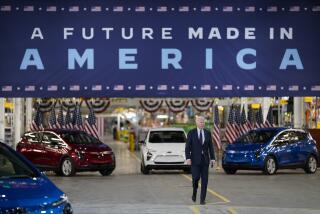Abuse pollutes state environmental law
SACRAMENTO — State Sen. Jerry Hill grew up in San Francisco and vividly remembers the rare suffocating days of late summer when the fog fled and people sweltered.
The city’s natural air conditioner clicked off, temperatures soared into the 90s and — back then — the skies boiled into a toxic soup.
“There’d be four or five hot days, around 1963 and 1964, when I was playing high school football and the smog was so thick I couldn’t run 10 yards without stopping and choking to get air,” remembers Hill, 65, new chairman of the Senate Environmental Quality Committee.
“We’ve come a long way. The air is pretty much smog-free now. I don’t want to weaken any of the [environmental] laws. A lot of people consider them a nuisance, but we’re living longer and our quality of life is much better.”
The San Mateo Democrat credits much of the improvement to the 43-year-old California Environmental Quality Act, or CEQA as it’s called.
Yet, Hill readily acknowledges that CEQA — signed into law by Gov. Ronald Reagan — needs modernizing.
“We recognize there’s a problem,” he says, speaking for Sacramento Democrats. “Something should be done. There are so many interests that utilize CEQA for so many reasons. When something is used for other than its purpose, it dilutes its effectiveness for that purpose.
“We want to make it work more effectively and more timely, so as not to be a hindrance to [development] projects. We have to address these issues and not hide from them.”
Hill wants to return CEQA to what it originally was: a check on environmental degradation. It gradually veered out of control as various interests learned to use the landmark law for their own non-environmental agendas.
It became, too often, a tool of business rivals trying to block competition, NIMBYs (“not in my back yard”) attempting to thwart local projects and unions strong-arming developers for labor concessions.
Meanwhile, project delays dragged on for years, money was wasted on consultants and lawyers, and California burnished its reputation as a lousy place to do business.
Hill’s views are particularly important because he was recently named by Senate leader Darrell Steinberg (D-Sacramento) to head the committee that will be a filter for CEQA legislation.
He replaced moderate Democrat Michael Rubio of Kern County, a strong advocate of CEQA reform. Rubio suddenly resigned, citing family reasons, to head Chevron Corp.’s lobbying operation in Sacramento.
Turns out Rubio had questionable financial ties to an executive with another oil outfit, San Joaquin Refining Co. The watchdog Fair Political Practices Commission is looking into it.
Rubio had been the great hope of CEQA reformers. And some privately were disappointed that Hill, a liberal with environmental leanings, was chosen as his successor. The committee already was stacked with environmentalists.
But Hill, a former city councilman and county supervisor, represents Silicon Valley, which is pushing hard for a CEQA overhaul. So the political pendulum may not have shifted very far left.
“We were thrilled at the choice of Jerry Hill,” says Carl Guardino, head of the Silicon Valley Leadership Group, part of a business-oriented CEQA reform coalition. He said Steinberg and Hill have assured him that “they want to do something bold, not modest.”
Gov. Jerry Brown also wants to do something, although it’s not clear what because he hasn’t proposed anything. He has characterized reforming CEQA as “the Lord’s work.” But he seems to be waiting for the Lord to do it.
Brown and Democratic legislators are leery of ticking off labor, their biggest financial benefactor and, therefore, the strongest influence in Sacramento.
Labor is the principal protector — along with environmental organizations—of the CEQA status quo.
So why not just buy off labor with a backroom deal and get on with reforming CEQA — get on with development and job-creation? Require that any private construction project that falls under CEQA regulation have a labor agreement.
That would be illegal under federal law, says Jennifer Hernandez of San Francisco, a CEQA attorney usually on the developer’s side.
But labor is pretty good at bargaining. Surely it could work out some CEQA compromise.
If not, Democrats should dunk right over their behemoth patron, to use a basketball analogy. Should, but inconceivable.
Many union leaders deny there’s even a problem.
“We just see another cry by business for deregulation,” says Robbie Hunter, president of the State Building and Construction Trades Council of California. “The history of deregulation the last 20 years has been horrible.”
Change advocates insist they’re not trying to weaken environmental regulations — just trying to stop them from being misused for non-environmental purposes.
One union leader — Daniel Curtin, director of the California Conference of Carpenters — candidly asserts: “Everybody has to stop abusing CEQA. It’s abused by business, it’s abused by unions, it’s abused by anti-development people, it’s abused by NIMBYs.”
Steinberg recently introduced legislation offering a framework for modest reform.
Among other things, it would encourage “infill” developments, reducing urban sprawl. It would expedite the CEQA process for green projects, such as renewable energy and transportation. It would streamline court paperwork and prohibit so-called “late hits” by project opponents.
“I’m getting it from both ends,” Steinberg told me, reporting that neither side is particularly pleased. “But people have to decide whether they want to fix the problem or be partisan warriors.”
Maybe too many people benefit from the abuse. Maybe the policy is too complex and the politics too perilous for the Legislature. If so, there’s no hope — unless the governor starts doing the Lord’s work.
More to Read
Start your day right
Sign up for Essential California for news, features and recommendations from the L.A. Times and beyond in your inbox six days a week.
You may occasionally receive promotional content from the Los Angeles Times.







